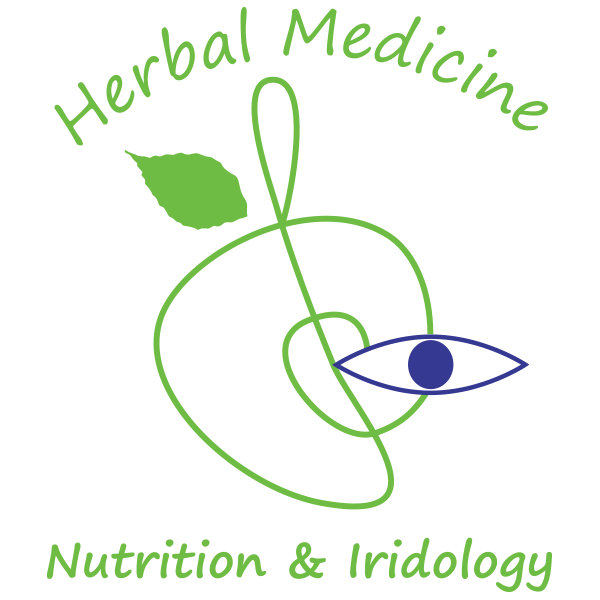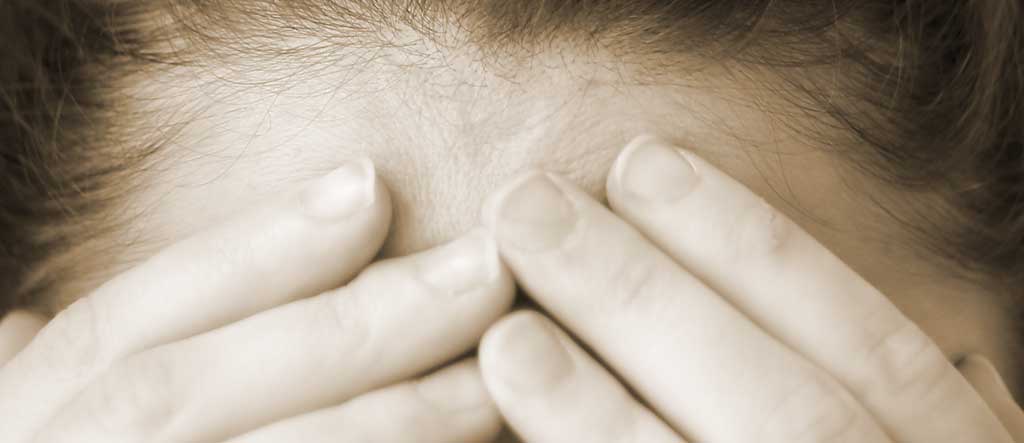There are many kinds of headache, the most common being tension headache, migraine and cluster headaches. Primary causes include muscle spasms in the head, neck or shoulders, restriction of the blood supply to the brain, stress and fatigue, menstrual symptoms, sleep disturbance, eye strain, environmental pollutants and food allergies or intolerances. Headache pain ranges from mild to severely disabling and can last for minutes or days and may be accompanied by nausea, photophobia and visual disturbances. Frequent headaches can be a symptom of more serious disorders such as brain tumour, meningitis or cerebral vascular problems.
Dietary Advice for headache
Dehydration is a common cause of headaches so drinking plenty of water is important. “Many common foods contain chemicals, particularly tyramines and nitrite, that have a direct effect on the brains of genetically prone individuals, triggering neural and blood vessel changes culminating in headaches.”¹ Known triggers of food related headaches include chocolate, red wine, yeast and dairy products. Identifying and eliminating personal food-triggers may succeed in eliminating associated headaches.
Inflammation in the head area is indicative of poor circulation. An excess of dairy and white flour products in the diet can cause congestion and inflammation. Apple cider vinegar and lemon juice will help if the body is overly acidic. Nausea and vomiting are common with severe headaches. Simple meals such as potassium broth, cleansing juices such as apple, carrot and celery with plenty of ginger to increase circulation, or lightly steamed vegetables are easy to digest.
Many culinary herbs can also help, such as turmeric to reduce inflammation, horseradish to decongest nasal passageways, and cayenne, rosemary and sage to increase circulation.
To avoid over-burdening the liver, eliminate animal fats and refined foods. James Duke recommends sunflower seeds, watercress, bean sprouts, lentils and spinach for their high content of phenylalanine, a pain-relieving compound, also garlic for its blood-thinning properties.²
Natural healing protocols for headache
Lying down in a quiet darkened room is restful. Tension can be alleviated by deep breathing, self-massage and shoulder rolls. Reflexology and acupuncture can effectively address pain and deep muscular tension. Inverted yoga postures can increase oxygen and blood flow to the brain.
Hot and cold fomentations applied to the abdomen, with a hot footbath and a cold compress to the head, will often relieve headache.³
For sinus headaches steam inhalations with the addition of essential oils such as eucalyptus, pine and lavender will help to open nasal passageways. Rinsing out the sinuses with saltwater using a neti pot can help to eliminate mucus congestion.
Herbal remedies for headache
Chronic constipation is a major cause of headaches, so bowel cleansing is essential. When the bowel is fully cleansed, the liver can be addressed. For acute pain, meadowsweet and willow bark contain salicylic acid, meadowsweet will also benefit the digestive system. Nervines that correct stomach imbalances include mugwort, chamomile and lemon balm. For cluster headaches St. John’s wort and wild yam could also be included to reduce pain. St. John’s wort would be contra-indicated where there is photophobia.
Stress is a contributory factor in all headaches; it lowers immunity and slows digestion, which can leave those prone to food-triggered headaches more vulnerable.
Siberian ginseng would help where headaches are due to exhaustion. Echinacea is an antimicrobial, immunomudulator, anti-inflammatory, anticatarrhal and alterative, it can be of particular benefit for sinus infections.
“As a rule headaches respond remarkably well to placebo, in about 50% of cases, according to most authors.”4 Nervines provide emotional and mental support, plus many secondary actions on the physical level. Vervain is a nervine tonic, sedative, antispasmodic, diaphoretic, hypotensive, galactagogue and hepatic. “It is particularly suited to people who are strong-willed, enthusiastic, work too hard and cannot relax.”5 “Wood betony is an excellent remedy for all head and face pains, and for nervous troubles.” “For treatment of nervous headache it combines well with Skullcap.”6
Nervines that assist with circulation include linden blossom, valerian, motherwort and lemon balm, which will help with vascular headaches. Gingko biloba, prickly ash, ginger and cayenne will help to increase blood flow and oxygen to the head.
Antispasmodics such as cramp bark, black cohosh, mugwort, passionflower and valerian will help to relieve tension. “The majority of these herbs heal damaged or overworked nerves, and relieve nervous tension and irritability caused by irregular and painful action of the muscles.”7
The above is for informational purposes and does not constitute medical advice. Do not self-prescribe with herbs. See a herbalist or GP if you suffer with frequent headaches.
References:
(1) Carper J. Food Your Miracle Medicine. Great Britain: Simon & Shuster Ltd.; 1994. p. 286.
(2) Duke J. The Green Pharmacy. Emmaus Pennsylvania: Rodale Press; 1997. p. 235.
(3) Kloss J. Back to Eden. 2nd Ed. Twin Lakes USA: Lotus Press; 2009. p. 794.
(4) Weiss R.F. M.D. Weiss’s Herbal Medicine, Classic Ed. New York:Thieme; 2001. p. 303.
(5) Bruton-Seal J., Seal M. Hedgerow Medicine. U.K.: Merlin Unwin Books; 2011. p. 170.
(6) Hoffman, D. Holistic Herbal, A Safe Practical Guide to Making and Using Herbal Remedies. 3rd Edition. Great Britain: Thorsons, Harper Collins Publishers; 1990. p. 179.
(7) Christopher J.R. School of Natural Healing. Centennial Ed. U.S.A.: Christopher Publications; 2009. p. 393.
Image by: Jose Navarro / CC BY (https://creativecommons.org/licenses/by/2.0)

